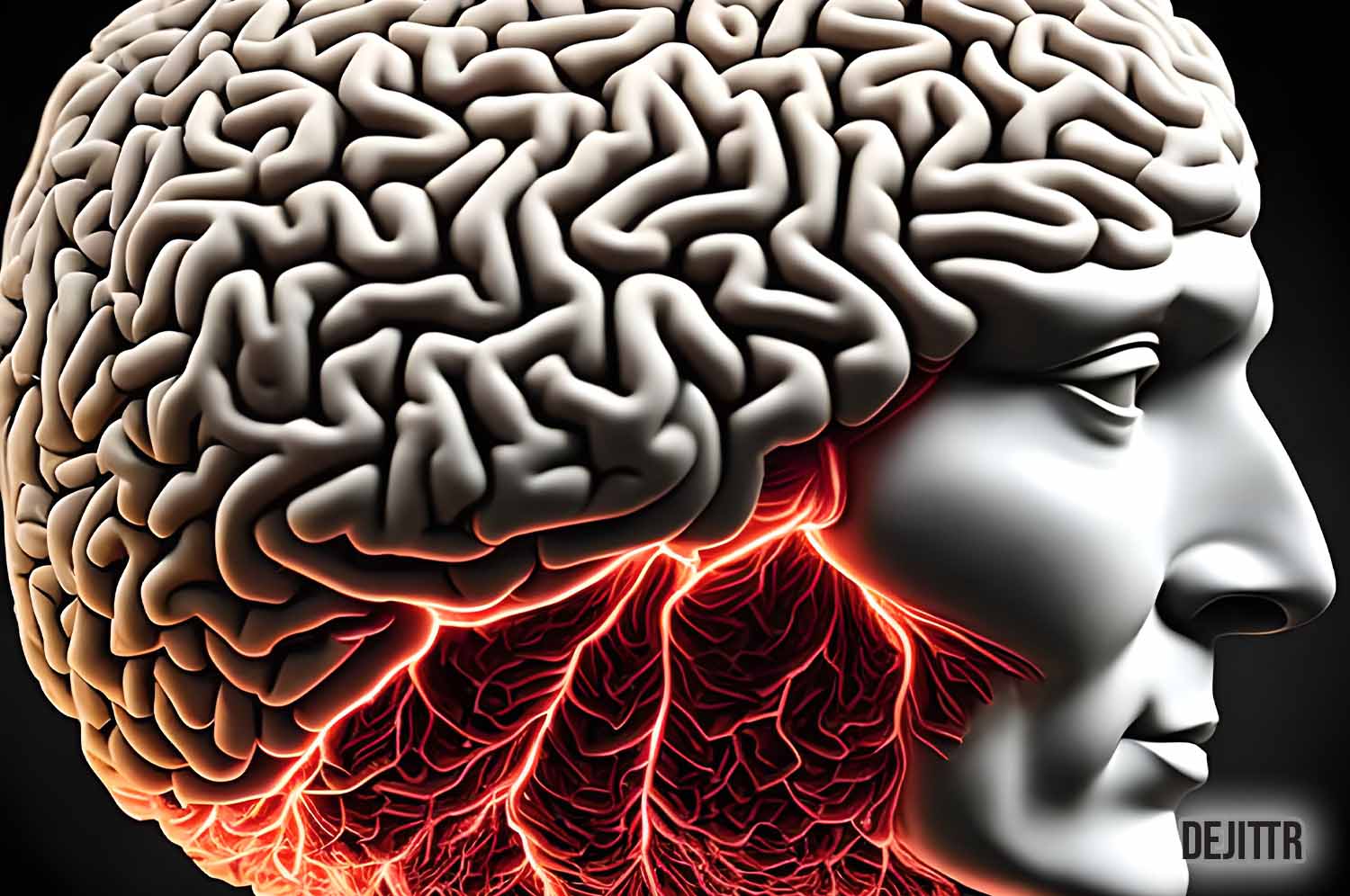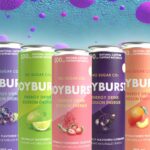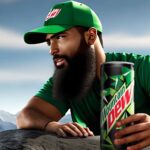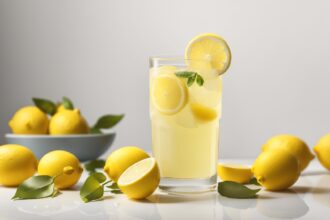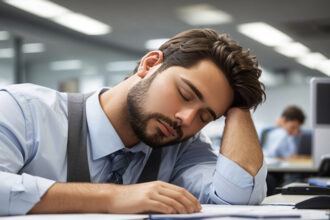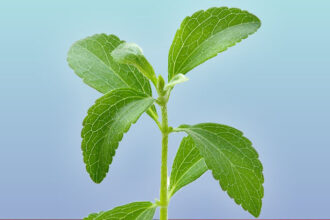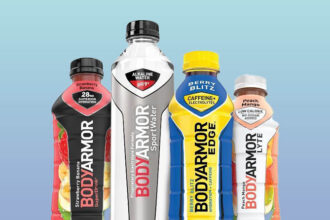Nootropic drinks have become increasingly popular in recent years, promising to boost productivity, focus, and concentration. But what exactly are nootropic drinks, and are they safe?
Key Takeaways:
A nootropic drink is a beverage that contains ingredients that aim to improve cognitive function and brain health by reducing brain fog, enhancing focus, and promoting memory recall. These drinks usually contain natural nootropics such as caffeine, green tea extract, or omega-3 fatty acids.
In this blog post, we’ll delve into the world of nootropic beverages, discuss their safety and side effects, and explore how they compare to caffeine and more. So, let’s dive in!
What Are Nootropic Drinks?
Nootropics – also called smart drugs or cognitive enhancers, are substances that can enhance cognitive function, memory, and creativity. They can be found in a variety of forms, from pills and powders to the increasingly popular nootropic drinks.
List Of Ingredients Typically Found in Nootropic Drinks
| Ingredient | Explanation |
| Caffeine | Helps improve focus and alertness. |
| L-Theanine | Aids in relaxation and reduces anxiety. Often combined with caffeine to promote a state of calm focus. |
| Bacopa Monnieri | Known for its ability to improve memory and cognitive function. |
| Rhodiola Rosea | Helps reduce mental fatigue and improves cognitive performance. |
| Ginkgo Biloba | May improve cognitive function, memory, and concentration. |
| Lion’s Mane Mushroom | Contains compounds that may stimulate nerve growth and improve cognitive function. |
| Ashwagandha | An adaptogen that helps reduce stress and improve cognitive function. |
| Turmeric | Contains compounds that have anti-inflammatory properties and may improve brain function. |
| B Vitamins | Essential for brain function and may help reduce symptoms of depression and anxiety. |
| Omega-3 Fatty Acids | Important for brain function and may help reduce symptoms of depression and anxiety. |
Are Nootropic Drinks Safe?
Like any supplement or dietary aid, the safety of nootropic drinks depends on the specific ingredients and dosages. Generally, nootropic drinks are considered safe when consumed responsibly and according to the manufacturer’s instructions.
However, it’s important to note that the FDA does not regulate nootropics as strictly as prescription drugs, so it’s crucial to do thorough research and consult with a healthcare professional before trying a new nootropic drink.
Are Nootropic Drinks Euphoric Drinks?
Euphoric drinks are designed to produce a sense of pleasure, happiness, or euphoria. These types of drinks often contain alcohol or other substances that can alter mood and induce a temporary feeling of elation or relaxation.
Nootropic drinks are not necessarily euphoric drinks. While some nootropic drinks may have ingredients that can enhance mood or provide a feeling of well-being, they are primarily designed to improve cognitive function, memory, focus, and alertness.
That being said, some nootropic drinks may contain ingredients that can have a mild euphoric effect, such as caffeine or theobromine. However, the primary purpose of these ingredients is to enhance cognitive function, not to induce a state of euphoria.
It’s important to note that excessive consumption of any type of drink, including nootropic drinks, can negatively affect health and well-being.
What Are The Side Effects Of Nootropic Drinks?
The side effects of nootropic drinks can vary widely depending on the specific ingredients used. Some common side effects may include:
- Nausea
- Headaches
- Insomnia
- Anxiety
- Increased heart rate
It’s essential to read labels carefully, understand the potential side effects, and follow the recommended dosages to minimize any risks.
Are Caffeinated Drinks Considered Nootropics?
So, caffeine is a well-known stimulant found in beverages like coffee, tea, and many energy drinks. It’s famous for giving you that little jolt of energy and alertness when you need it most. But does it qualify as a nootropic?
Caffeine does have some cognitive-enhancing effects, such as improving focus, concentration, and even reaction time. That’s why so many people turn to a cup of coffee or an energy drink to power through their day. But here’s the catch: unlike nootropics, which are designed to provide brain-boosting benefits without harmful side effects, caffeine can have some drawbacks.
You see, consuming too much caffeine can lead to side effects like jitters, insomnia, and even increased heart rate. So, while it does have some nootropic-like effects, it doesn’t quite meet the criteria for being classified as a nootropic because of the potential side effects.
However, many nootropic drinks on the market do contain caffeine, but they don’t rely on it alone. They often include other ingredients, like L-theanine, Rhodiola rosea, or Bacopa monnieri, that work together to support cognitive performance without the negative side effects typically associated with excessive caffeine intake.
So, to sum it up, while caffeinated drinks can temporarily boost focus and alertness, they’re not considered true nootropics because of their potential side effects. True nootropic drinks combine caffeine with other cognitive-enhancing ingredients to provide well-rounded support for your brain without drawbacks. Pretty cool, right?
Nootropic Drinks vs. Caffeine Drinks: The Ultimate Battle for Cognitive Boost
In the modern world, we’re always on the hunt for ways to enhance our productivity, focus, and mental agility. Two popular contenders in the quest for a cognitive edge are nootropic drinks and caffeine drinks. But what sets them apart? And which one should you reach for when you need that mental pick-me-up? Let’s dive deep.
The Age-Old Favorite: Caffeine Drinks
Caffeine drinks have long been the go-to choice for those seeking a quick jolt of energy. Ranging from classic coffee and tea to energy drinks and sodas, these beverages rely on caffeine to help combat fatigue, sharpen focus, and provide a temporary mental lift.
| Pros | Cons |
| Widely available and accessible | Can lead to dependence, tolerance, and withdrawal symptoms |
| Relatively inexpensive | Short-term energy boost, often followed by a crash |
| Familiar taste and ritual for many people | May cause jitters, anxiety, or sleep disturbances if consumed in excess |
| Quick onset of effects |
The New Kid on the Block: Nootropic Drinks
Nootropic drinks are an innovative addition to the cognitive enhancement scene. They contain a carefully crafted blend of nootropic ingredients designed to support brain function, improve focus, and enhance memory, all without relying solely on caffeine.
| Pros | Cons |
| Can improve cognitive function and focus | Less widely available and may be more expensive |
| May enhance memory retention and recall | Effects may vary depending on the specific blend of ingredients |
| Some ingredients, such as L-theanine, can promote relaxation and reduce stress | Some nootropic ingredients have limited research to support their effectiveness |
The Verdict: Which One Takes the Crown?
As with many things in life, the winner between nootropic drinks and caffeine drinks depends on your individual needs, preferences, and circumstances. Here are a few things to consider when making your choice:
- Duration of Effects: A caffeine drink might be your best bet if you’re looking for a quick energy boost to power through a short task. But a nootropic drink could be a better option if you need sustained focus and mental energy throughout the day.
- Sensitivity to Caffeine: If you’re sensitive to caffeine or want to avoid the jitters and potential sleep disturbances, a nootropic drink might be the way to go.
- Overall Brain Health: Nootropic drinks often contain ingredients that support overall brain health, including adaptogens and vitamins. If you want to improve your cognitive function in the long term, a nootropic drink may be a more holistic approach.
- Taste Preferences: Some nootropic drinks have unique flavors, while caffeine drinks like coffee and tea offer familiar taste profiles. Consider which taste you prefer when making your choice.
Ultimately, the choice between nootropic drinks and caffeine drinks comes down to personal preference and individual needs.
You might even find that a combination of both works best for you—perhaps a morning coffee to kick-start your day, followed by a nootropic drink in the afternoon for sustained focus. The key is to listen to your body, experiment, and find the balance that works best for your cognitive goals
Is Coffee Considered A Nootropic?
Coffee is not considered a nootropic in the traditional sense, but it does exhibit some nootropic-like properties due to its caffeine content. Caffeine, which is the most widely consumed psychoactive substance in the world, can enhance cognitive performance, alertness, and focus.
While coffee’s energy-enhancing qualities align with the effects of nootropics, it does not meet the strict criteria of a nootropic.
According to the chemist Corneliu Giurgea, for a substance to be classified as a nootropic, it must have the following criteria:
- Improving one’s capacity for learning and remembering
- Facilitate cognitive performance in stressful situations
- Defend the brain against chemical injury.
- Increase the efficiency of nerve impulses
- Do not have any intoxicating, sedative, or stimulating properties
As you can see, one of the key criteria for a substance to be considered as nootropic is not to have toxic properties. And unfortunately, caffeine present in coffee can be toxic if consumed in excess.
Are Energy Drinks Considered Nootropics?
Energy drinks are not considered nootropics. Although both energy drinks and nootropics are designed to improve cognitive function, they work in fundamentally different ways.
Energy drinks typically contain high levels of caffeine, sugar, and other stimulants that provide a temporary boost of energy and alertness. While these ingredients can improve focus and concentration in the short term, they can also cause jitters, anxiety, and crashes later on.
Nootropics, on the other hand, are a class of supplements and drugs that are designed to enhance cognitive function more sustainably. They typically work by increasing blood flow to the brain, boosting the production of neurotransmitters, and protecting brain cells from damage. Some popular nootropics include piracetam, modafinil, and bacopa monnieri.
Can Caffeine Increase Productivity?
In short, Caffeine can certainly help increase productivity by providing a temporary energy boost and improving focus. However, over-reliance on caffeine can lead to dependence, tolerance, and negative side effects.
Now, caffeine is no stranger to most of us. It’s the stuff that gives our morning coffee or afternoon tea its magical energy-boosting powers. But does it really help with productivity? You bet it does!
Studies have shown that caffeine improves cognitive performance, including alertness, focus, and memory. So, in a way, it can help you stay on track when you’re tackling your tasks.
But wait, there’s more! Caffeine also affects our mood by increasing the release of dopamine, which plays a role in our feelings of motivation and reward. In other words, caffeine can make you feel good while you’re working hard, and who wouldn’t want that?
Now, before you go guzzling down cups of coffee like there’s no tomorrow, there’s a bit of a catch. Yes, caffeine can be a productivity booster, but only in moderation. Too much caffeine can lead to jitters, anxiety, and even sleep problems. And let’s be honest, nobody wants to feel like a jittery mess while trying to focus on their work.
So, how much caffeine is the sweet spot? Well, that depends on you and your individual tolerance. But as a general guideline, it’s recommended max limit around 400 mg of caffeine per day for healthy adults. That’s about 4 cups of regular brewed coffee.
But, hey, don’t forget that caffeine is also found in tea, energy drinks, and even chocolate, so keep an eye on your overall intake.
Nootropic Drink Powders
Nootropic drink powders are a convenient way to create a personalized nootropic drink by mixing the powder with water, juice, or a smoothie. This provides greater control over the dosage and the ability to customize the flavor to your preference.
There are various nootropic drink powders available on the market, each with its own unique blend of ingredients that offer brain-enhancing benefits.
Here are the top three nootropic drink powders (available on Amazon):
#1. FOCUSAID GO Nootropics Energy Blend: This powder is an excellent choice for those looking to stay hydrated and energized. It has zero sugar, is keto-friendly, and contains only 5 calories per serving.
With 100mg of natural caffeine from yerba mate and green tea, this blend also includes nootropics like Alpha-GPC and GABA to help improve your focus. It’s free of artificial flavors and sweeteners, and has a refreshing melon taste.
#2. Genius Consciousness Nootropic Brain Supplement Powder: This powder is designed to awaken your mind with its powerful, natural focus-enhancing ingredients.
This snow cone-flavored drink supports memory, concentration, and mood, thanks to its blend of Dynamine, NeuroFactor, AlphaSize, and natural caffeine. It also contains Lion’s Mane and NeuroFactor to promote the creation of new brain cells, helping you think more clearly and creatively.
#3. Glaxon Goon Energy Nootropic Supplement: This product is an energy-boosting drink powder that helps you bring your A-game, whether you’re gaming, working, or hitting the gym.
With caffeine anhydrous and theobromine for energy, VitaCholine and L-Tyrosine for enhanced focus, and Brain Factor-7 for improved memory, this pineapple lemonade-flavored supplement keeps you sharp.
It also includes a full-spectrum electrolyte blend for hydration support, so you can stay at your best throughout the day.
Use Cases Of Nootropic Drinks
Nootropic drinks can be helpful in various situations, such as:
- Studying for exams or working on complex tasks
- Enhancing creative thinking and problem-solving
- Increasing focus during long meetings or presentations
- Supporting mental clarity during periods of high stress
Conclusion
Nootropic drinks are an intriguing option for those seeking to enhance their cognitive abilities, focus, and concentration. While they may offer potential benefits, it’s essential to be cautious and well-informed about the specific ingredients and possible side effects.
Remember that nootropics are not a magic bullet, and their effectiveness may vary between individuals. As with any supplement, it’s always best to consult with a healthcare professional before incorporating nootropic drinks into your routine.
And, of course, maintaining a healthy lifestyle, including a balanced diet, regular exercise, and proper sleep, is the foundation for optimal cognitive function.


